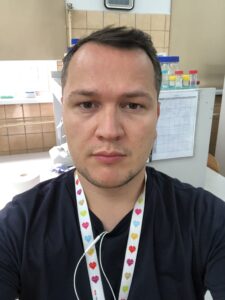
Dr hab. Alexander Betekhtin, prof. UŚ (PI in OPUS and Sonata Bis projects)
Alex studied Plant Physiology and Biotechnology at the Kazan State University in Russia, where he worked on buckwheat tissue culture research. He then joined Prof. Robert Hasterok at the University of Silesia in Katowice, where he was involved in studies on evolution of the Brachypodium genus by chromosome painting technique. Alex did internships at Aberystwyth University (UK), John Innes Centre (UK), University of Zaragoza (Spain), Paul Sabatier University (France) and University of Heidelberg (Germany). Currently, Alex is back to intensive research in Fagopyrum.
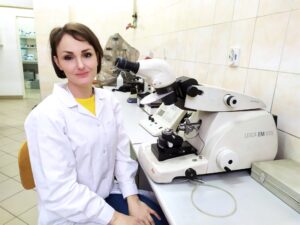
Dr Anna Milewska-Hendel (PI in Miniatura project)
Anna has been associated with the University of Silesia in Katowice throughout higher education. She obtained an MSc and PhD, both under the supervision of prof. Ewa Kurczyńska. In her research, she focused on changes in the chemical composition of the cell wall of various plants subjected to abiotic stress. One of Anna’s main research tasks currently performs concerns the plant-nanoparticles interactions. Currently, Anna uses her knowledge and experience in nanotechnology in Fagopyrum research.
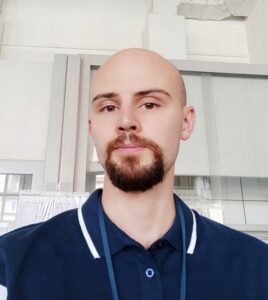
Dr Artur Piński
Scientific interests of Artur are mostly connected with the plant cell wall proteome, especially hydroxyproline-rich glycoproteins and their involvement in stress response. In his work, he is mostly focused on Brachypodium and Fagopyrum genera. Artur is proficient with genome editing techniques (CRISPR-Cas9 system) and molecular biology.
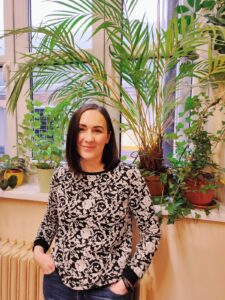
Dr Katarzyna Sala
Katarzyna obtained MSc and PhD degree at the University of Silesia in Katowice. Her scientific interests concern widely understood plant cell differentiation events that are triggered by various stimuli. She has been studying changes in the cell wall composition during in vitro cultures or grafting. Currently, Katarzyna is focused on epigenetic changes in Fagopyrum research.
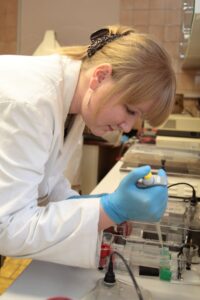
Dr Natalia Borowska-Żuchowska
Natalia has been associated with the University of Silesia in Katowice throughout higher education. Her research focuses on plant genome structure, evolution and epigenetic regulation. Of special interest are analyses of evolution of the repetitive DNA fraction of the genome which encompasses 35S and 5S rDNA and satellite DNAs. In her research on Fagopyrum species, she is focused on epigenetic changes during the transition from the vegetative to generative stage and during the transition from non-embryogenic to an embryogenic state. She is now optimizing the chromatin immunoprecipitation approach on morphogenic and non-morphogenic callus of common and Tatary buckwheat
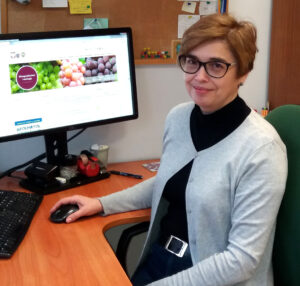
Dr hab. Ewa Grzebelus, prof. URK (external collaborator from the University of Agriculture in Krakow)
Ewa is a graduate and doctor of the University of Agriculture in Krakow, where she also obtained her postdoctoral degree. Since 2001, she has been employed at the Faculty of Biotechnology and Horticulture and conducts all her scientific activities at the Department of Plant Biology and Biotechnology (earlier Department of Genetics, Plant Breeding and Seed Science). She developed her scientific skills during internships at Julius Kuhn Institute (Germany) and the Wisconsin University (USA). The current direction of her research is related to plant protoplast development in vitro and somatic hybridization in crop species. To develop somatic hybrids, she uses both PEG- and electric field-based approaches and early selection systems of hybrid cells based on differential fluorescence staining of parental cells and micromanipulators equipped to the microscope. Her scientific interest is related to karyotype evolution within the genus Daucus.
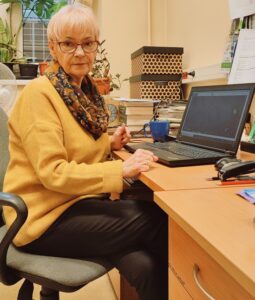
Prof. Ewa Kurczyńska
Ewa is associated with the University of Silesia in Katowice throughout her professional career, where she obtained the degrees of doctor, habilitated doctor and the title of professor. Her research is focussed on understanding the mechanisms underlying the changes in the direction of cell differentiation. She focused on changes in the chemical composition of the cell wall during reprogramming of cell fate with the use of immunohistochemical technique. Moreover, understanding the role of plasmodesmata in signal exchange during plant cells differentiation is also major aspect of her research.
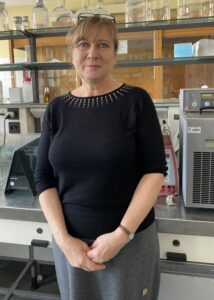
Prof. Agnieszka Płażek (external collaborator from the University of Agriculture in Krakow)
Prof. Agnieszka Płażek is a plant physiologist specializing mainly in plant resistance to environmental stresses. She obtained her scientific degrees and titles at the University of Agriculture in Krakow. She addressed the problem of the low yield of buckwheat within the Biological Progress program funded by the Ministry of Agriculture and Rural Development. Moreover, she was a PI of the grants funded by the National Science Center. The grants were connected with the causes of severe flower and seed abortion in common buckwheat. Professor Płażek cooperates with scientists from the Jagiellonian University, the Institute of Plant Physiology of the Polish Academy of Sciences in Krakow, and now with scientists from the University of Silesia in Katowice.
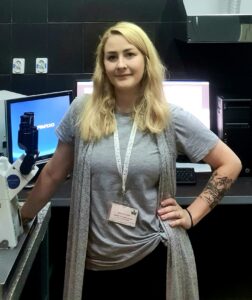
Alicja Tomasiak (former PhD student), defense date: 7.03.2025
Alicja has completed Undergraduate and Master’s studies in Genetics at the University of Aberystwyth in Wales, United Kingdom. In 2020 she became a Cytogenetics and Molecular Biology Group member as a PhD student. She is involved in tissue culture research in Fagopyrum, focusing on epigenetic changes during the transition from non- embryogenic to an embryogenic state.
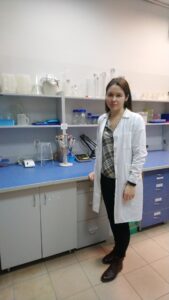
Magdalena Zaranek (former PhD student), defense date: 4.09.2025
Magdalena received an Engineering degree and Master’s degree in biotechnology at the University of Agriculture in Krakow. Her diploma thesis concentrated on the analysis of the regeneration ability of buckwheat (Fagopyrum tataricum L.) protoplasts isolated from embryogenic callus. She specializes in protoplasts culture of Fagopyrum esculentum and Fagopyrum tataricum. She is now optimizing the conditions for the of culture protoplasts isolated from hypocotyls and callus of common and Tatary buckwheat.
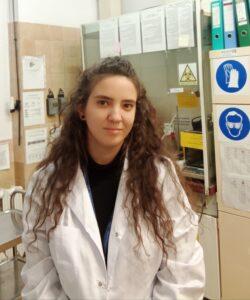
Renee Perez Perez (former PhD student), defense date: 15.10.2025
Renee studied Microbiology at the University of Havana in Cuba, where she also obtained her Master’s degree in Microbial Ecology jointly with the National Institute of Agricultural Sciences of Cuba. There she worked on the isolation and characterization of Plant Growth Promoting Rhizobacteria for use as agricultural bioproducts. She also specialized in the interaction of Rhizobium – non-legumes, specifically corn and rice. Subsequently, she joined the Plant Cytogenetic and Molecular Biology Group at the University of Silesia in Katowice, she conducts research for the improvement of buckwheat (Fagopyrum sp.).
